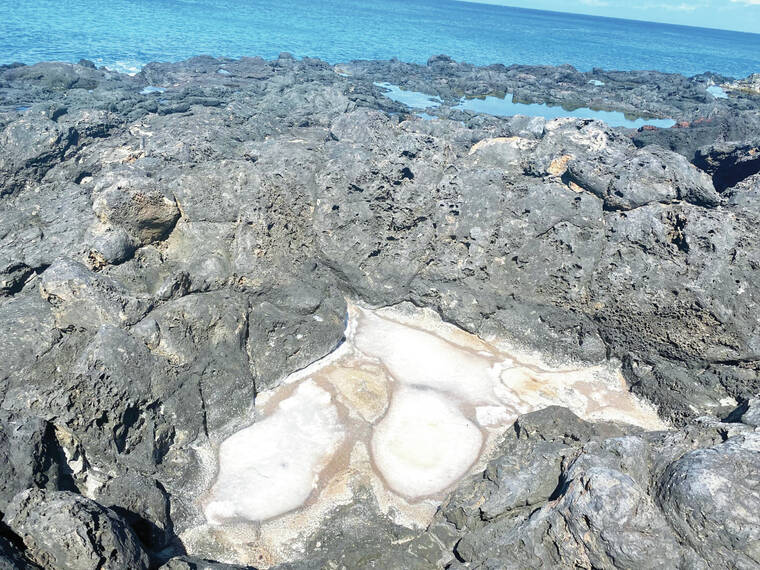Sodium is an essential nutrient, which means that it’s something that our body can not produce on its own, so we need to consume it. Sodium plays a vital role in the regulation of many of our body’s functions, including fluid balance and acid base balance.
It is contained in the fluids that transport oxygen and nutrients throughout the body, enabling the delivery of nutrients to the body’s cells and the transmission of nerve impulses around the body. It is an electrolyte, like potassium, calcium and magnesium, and regulates the electrical charges moving in and out of our cells. It also controls our taste, smell and tactile processes and is essential for the contraction of our muscles, including the heart. It is fundamental to the operation of signals to and from the brain, and without sufficient sodium our senses would be dulled and our nerves would not function.
Chloride too is essential to good health and is a fundamental element in the digestion process, preserving the acid-base balance in the body, aiding potassium absorption and enhancing the ability of the blood to carry carbon dioxide from our tissues to the lungs.
Most people, however, are skeptical about consuming salt. In our minds we often put all salts in the same category, yet most people tend to consume only table salt, or sodium chloride. Even if you never touch a package of table salt you are likely consuming it without knowing, simply by eating out or consuming packaged foods. For example, canned or frozen vegetables, smoked or canned meats, salad dressing, ready to eat meals, peanut butter, crackers, sauces, processed cheese, vegan products, potato chips and many many more contain table salt. It really is everywhere.
So is salt dangerous or beneficial, for example can it cause high blood pressure? Of course it is possible that it could cause problems in some individuals, but it’s not possible to just categorize all salt as bad. Just like fats, carbohydrates and protein, salt comes in many different forms. You should definitely think twice about sodium chloride, or table salt, and most likely the best approach here is to totally avoid it. But Celtic salt, sea salt and Himalayan salts have a very different structure are is actually very much beneficial for us. These salts play an important role too in digestion, balancing electrolytes, reducing appetite, sugar cravings, thirst, and aiding with hydration and carbohydrate digestion. Our body contains on average around 250 grams of salt, and if we have any excess then the body naturally excretes it.
Celtic salt contains 92 different minerals, Himalayan salt contains 84 minerals and other sea salts have around 72 minerals. Table salt has just two — sodium and chloride. But using Celtic, Himalayan and sea salts are not only good for adding delicious taste and getting important minerals and trace minerals, they also have many other health benefits.
Celtic salt can help with joint pain, it can help improve our skin, it promotes healthy cell growth, and is helpful for our sinuses.
Himalayan salt can help with improving respiratory function, prompting healthy blood sugar levels, regulating water content in the body, preventing muscle cramps and reducing soreness, promoting sinus health, bone strength, a prompt pH balance in the body and it can improve our sleep quality.
And sea salt can be beneficial in helping to improve pain in osteoarthritis, helping to maintain electrolyte balance, improving our skin health or acne, improving sleep, and reducing muscle soreness and pain.
We need to find the balance in everything that we consume. For example, consuming too much carbohydrates, fats, protein, salt or potassium could all potentially damage our health. But blaming salt or labeling all salts as bad could actually be hurting you too. Instead of avoiding salt, simply choosing healthy salts and avoiding table salts could be the solution. I believe that we should stop correlating high blood pressure with high salt intake. Instead, we could focus on healthier whole foods, a lower carbohydrate volume, more fresh fruits and vegetables and adding more potassium in our diets. And of course, we can be mindful of the type of salt that we are consuming.
Related articles:
Salt is an essential nutrient, not our enemy. https://healthangelwarrior.com/salt-is-an-essential-nutrient-not-our-enemy
Resources:
• Clinical Nutrition, A Functional Approach (second edition), by Liska, Quinn, Lukaczer, Jones, Lerman, Bland et al.
• How the body regulates salt levels. https://www.nih.gov/news-events/nih-research-matters/how-body-regulates-salt-levels
• Salt & The Function Of Our Cells. https://saltassociation.co.uk/education/salt-health/salt-function-cells/
• Top 5 Health Benefits Of Celtic Sea Salt. https://www.organicfacts.net/celtic-sea-salt.html
• Is Pink Himalayan Salt Better Than Regular Salt? https://www.healthline.com/nutrition/pink-himalayan-salt
• The 13 Amazing Health Benefits of Himalayan Crystal Salt, the Purest Salt on Earth. http://integrativemedicineofnj.com/the-13-amazing-health-benefits-of-himalayan-crystal-salt-the-purest-salt-on-earth
• Does pink Himalayan salt have any health benefits? https://www.medicalnewstoday.com/articles/315081
• Himalayan Salt: Is It Good for You? https://www.webmd.com/diet/himalayan-salt-good-for-you
• List of Minerals in Sea Salt. https://healthyeating.sfgate.com/list-minerals-sea-salt-8907.html
• 19 Amazing Benefits Of Sea Salt. https://www.organicfacts.net/health-benefits/other/health-benefits-of-sea-salt.html
•••
Ayda Ersoy is a nutritionist (Dip.C.N., Dip.S.N.); master trainer (CPT ACE, NCSF, CanfitPro); registered yoga teacher; founder, Health Angel Nutrition, Fitness and Wellness; and founder, SMS (Stability, Mobility Strength) Intuitive Training System.


